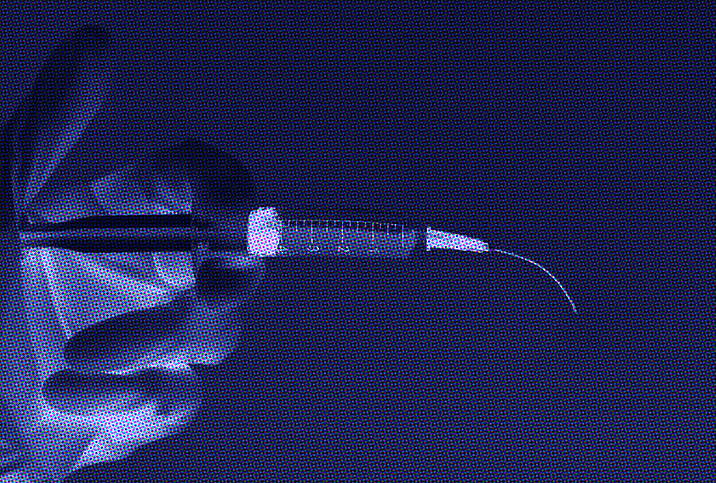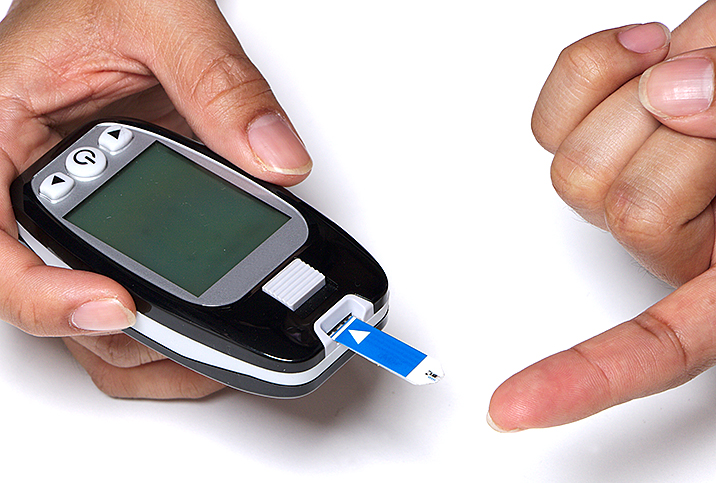The Science Behind Diabetes and ED

Diabetes is one of the most widespread health threats in America today. About 34 million Americans have diabetes—fully 10 percent of the U.S. population—while another 88 million adults are prediabetic, according to estimates from the Centers for Disease Control and Prevention (CDC).
While it's rarely discussed, one of the most common side effects of diabetes is erectile dysfunction (ED). And it doesn't only affect men who have been diagnosed with diabetes; studies indicate that men who merely have genetic risk factors for type 2 diabetes are more likely to develop ED at some point in their life.
So what is the science that links diabetes and erectile dysfunction? Here, we look at some physiological reasons why diabetes affects erectile function and how the mechanics of erections are negatively impacted by diabetes. However, in order to dig into why men with diabetes often experience ED, we need to briefly discuss how erections work.
What makes an erection happen?
Let's start with the basics.
An erection results from a complex dance of hormones, blood flow, psychological and physical sensory input, and nerve impulses from the brain that are sent via the nervous system to the genitals.
When all goes according to plan, visual and physical stimuli trigger this cascade of reactions, resulting in increased blood flow to the corpus cavernosa—chambers in the penis that fill with blood and stiffen—where the blood becomes temporarily trapped.
Once there, the blood is held in place, in part, by the tunica albuginea, a thin sheath of elastin and collagen that surrounds the corpus cavernosa and constricts to keep the blood flow from going back out, resulting in an erection.
But as every man knows, the process doesn't always go as hoped. With such an intricate and intertwined set of players working in concert, if any single actor goes off script, it can result in erectile failure.
How does diabetes play into ED?
Diabetes interacts with the functions of erectile dysfunction in two general areas: blood flow and nerve damage. As both blood flow and penis nerves are incredibly important in sustaining an erection, you can see why this could be a problem.
Blood flow
Diabetes is notorious for causing poor blood circulation, which puts people at risk for a host of other problems. For instance, the American Diabetes Association estimates that one-third of people with diabetes and older than 50 experience peripheral arterial disease, a dangerous condition in which the body has difficulty getting blood to the legs and feet. It can lead to numbness and foot ulcers and sometimes even requires amputation.
As we've already discussed, healthy blood flow is vital to getting and maintaining an erection.
If, in addition to ED, you experience numbness or tingling in your hands or feet, hair loss in those areas, pale blue skin, brittle toenails, or wounds that are slow to heal in the extremities, contact your doctor right away.
Nerve damage
Peripheral neuropathy, or nerve damage in the extremities, is another side effect of diabetes. About half of all people with diabetes will experience it at some point.
Chronic high blood sugar causes damage to the nerves, including those in the penis that are crucial to feeling the sensations that cause and maintain erections. Numbness or tingling in the extremities may be a sign that you're experiencing diabetes-related nerve damage of the kind that could also affect your penis, which is another reason to get tested.
Other factors that affect diabetes & ED
It's important to note that a number of conditions and lifestyle choices that often accompany diabetes are also considered contributing factors to ED. Smoking, obesity, high blood pressure, poor diet and a sedentary lifestyle are among the top concerns.
Any one of these factors could be a game-changer for erectile function, so in addition to keeping up with diabetes treatment, you should be proactive about lifestyle choices. Get at least 150 minutes of exercise weekly, eat nutritious foods, quit smoking and maintain a healthy body weight if you want to have solid erections through middle age and beyond.

















